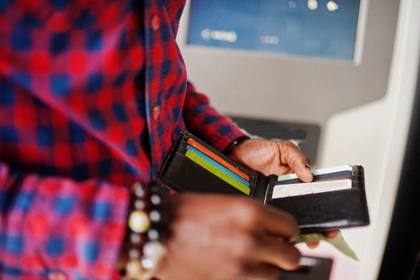Why should you wait between credit card applications?
Every time you apply for a credit card, a hard search is performed on your credit report. This causes a temporary dip in your credit score. The more often you apply for credit in a short timeframe, the bigger the hit to your score.
Applying for too many credit cards at once can also indicate to lenders that you’re struggling to manage your finances. They may question your ability to repay debt as a result.
How often should you apply for a new credit card?
You should only be applying for a new credit card when it makes sense for your finances and goals. Applying impulsively can lead to you having more debt than you can afford to repay.
Consider the following before applying for a new credit card:
- If you really need it. If you’re already looking for a new credit card, then there’s no harm in shopping around for one that suits your needs and financial situation. However, you should avoid applying for a new card if you feel you can manage without it.
- Your debt-to-income ratio. The higher the percentage of your income that you spend on debt each month, the harder you might find it to get approved for credit with competitive interest rates.
- Your affordability - If you're already using most of the credit available to you, then taking on another credit card could lead to financial difficulties.
- How long it’s been since your last application. Remember, the general rule is to leave at least 3 months between credit card applications.
- The impact on your credit score, especially if you’re trying to build it up. Taking out a new credit card will temporarily knock your credit score. If you don’t use it responsibly, it can further impact your score and may reduce your chances of being accepted for better deals.
What happens if I apply for credit again within three months?
Applying again within three months will leave another hard search on your credit file. This will be considered in addition to the previous searches and could further decrease the likelihood of you being approved.
What should I do if my application gets declined?
If your credit card application gets declined, then you should check your credit report to see if you can identify why.
Some common reasons credit applications get declined include:
- Incorrect details, such as an old address
- One or more missed payments on your credit file
- Financial links with someone else who has bad credit
- High credit utilisation (e.g., using a high portion of your available credit card limits)
Once you’ve checked your credit file, you can start working on building your score. It could take a while to see your score improve, so try to allow plenty of time before you apply for credit again.
When you’re ready to reapply, use an eligibility checker to see how likely it is you’ll be accepted before you apply. Eligibility checkers don’t leave a mark on your credit report and don’t affect your credit score.
How to improve your credit score
There are a few things you can do to improve your credit score, such as:
- Making sure you’re on the electoral roll at your current address
- Always paying existing credit agreements on time
- Addressing any errors on your credit file
- Request a ‘notice of disassociation’ from the relevant credit reference agency, to remove old financial ties on any closed accounts that you held in joint names.
- Keeping your credit utilisation around 25-30%
Remember, if you are struggling with debt, you can access free financial advice and support from a professional debt specialist. Visit Money Wellness, StepChange, Citizens Advice, National Debtline, or MoneyHelper to find out more.
Ocean Credit Card
See if it's a YES before you apply
- Up to £1,500 credit limit
- Checking won't affect your credit score
- Get a response in 60 seconds
39.9% APR
Representative (variable)
Intelligent Lending Ltd (credit broker). Capital One is the exclusive lender.

Disclaimer: We make every effort to ensure content is correct when published. Information on this website doesn't constitute financial advice, and we aren't responsible for the content of any external sites.






